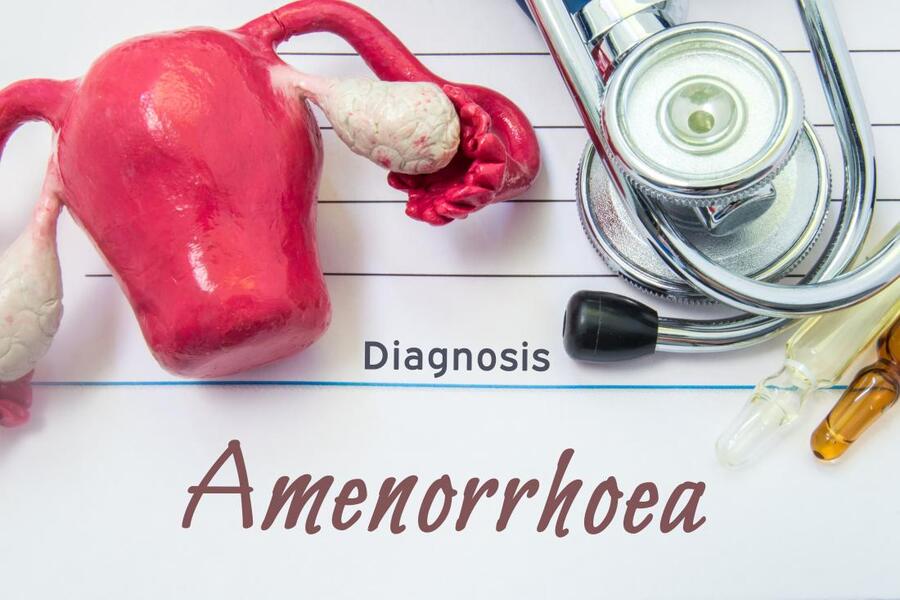
When you skip your monthly periods, you develop amenorrhea. Amenorrhea is the lack of menstrual bleeding. You are not getting a period when pregnant or after menopause is normal. However, skipping periods at other times could signify a more serious health problem.
Amenorrhea primarily comes in two forms. Primary amenorrhea may occur in those who haven’t started menstruating by age 16. The phrase also describes issues with the reproductive system that prevent menstruation. You can have secondary amenorrhea if you go three months without getting your period following nine months of regular cycles. Amenorrhea of this kind is more typical.
What are the signs and symptoms of amenorrhea?
The absence of your monthly menstruation is the primary sign of amenorrhea.It usually indicates a more serious disease or condition. These symptoms may also be present:
- Headache
- Vision morphs
- Nausea
- additional facial hair
- hair fall
- alterations in breast size
- Milky discharge coming from the breasts
- Keep a healthy weight
Your menstruation may change if your weight fluctuates. Losing weight may assist in controlling your period if you have a larger frame. Alternatively, unregular menstruation may be brought on by significant weight loss or undernutrition. Therefore, it’s critical to keep your weight at a healthy level.
Obese individuals are also more prone to menstruation, have irregular periods, and endure more blood and pain. This is a result of how insulin and hormones are affected by fat cells. Consult your doctor if you want to reduce your weight. They can assist you in choosing a goal weight and developing a plan to get there.
- Utilize ginger to add flavor
There is no scientific proof that ginger, standard home treatment for irregular periods, actually works. However, ginger does appear to have additional advantages that are connected to menstruation, mainly in terms of pain relief.
It has also been proven to be a successful method for treating painful periods to take 750 to 2,000 mg of ginger powder during the first 3 or 4 days of your period. Premenstrual syndrome symptoms in mood, physical health, and behavior were reduced by taking ginger for seven days before a period (PMS). Those with primary dysmenorrhea can effectively reduce pain by taking 200 mg of ginger every six hours.
- Every day, consume apple cider vinegar
Daily consumption of 0.53 oz (15 ml) apple cider vinegar may help women resume ovulatory menstruation. Since this study only included seven people, additional research must confirm these findings. Given its harsh flavor, apple cider could be challenging for some people to eat. Try diluting it with water and adding a tablespoon of honey if you want to try taking it but find the flavor to be too strong.
- Regular exercise
The numerous health advantages of exercise can help with your period. It is frequently suggested as a part of a treatment plan and can assist you in achieving or maintaining a moderate weight. Menstrual irregularity may result from it. By reducing the intensity and duration of menstrual cycle discomfort, exercise is an effective treatment for primary dysmenorrhea.
